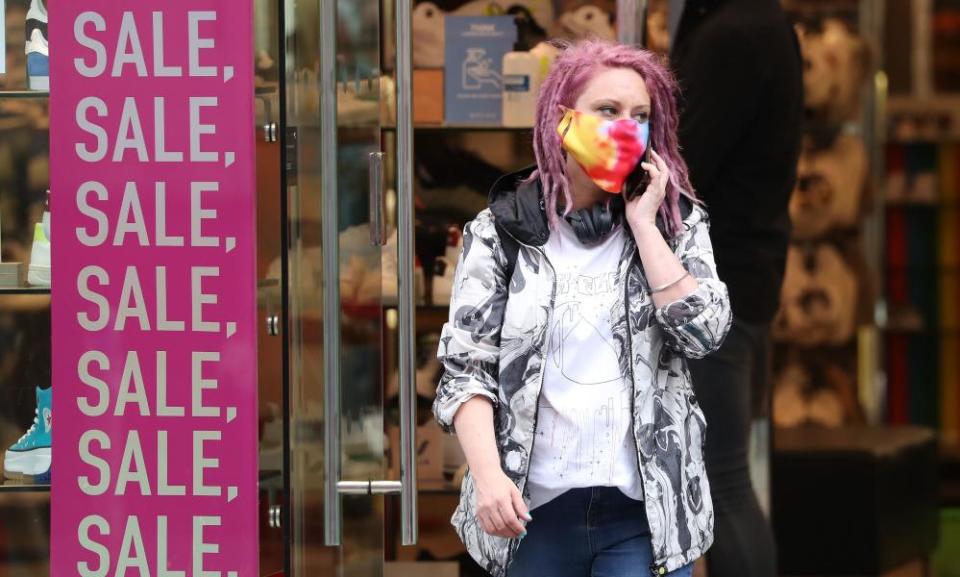Coronavirus: what are the rules over face masks in English shops?

With the government set to announce that wearing a face covering in shops and supermarkets will be mandatory in England from 24 July, here’s what you need to know about the new rules:
What are the regulations?
Face coverings will need to be worn inside shops by customers from Friday 24 July, although the rule will not apply to staff. Since 15 June, passengers on public transport in England – including on buses, trains and trams – have been required by law to wear face coverings.
Though coverings – such as cloth masks, scarves and bandanas – should go over the mouth and nose, there is no specification on the type, with the government advising people not to use medical-grade masks to ensure they remain available for frontline staff.
It remains unclear whether other businesses – such as cafes selling takeaway hot drinks – will be affected.
In Scotland, the use of coverings in shops has been mandatory since 10 July, while passengers on public transport have been required to wear one since 22 June.
Although shoppers in Northern Ireland and Wales are not required to wear face coverings, both have said they will keep this under review. In Northern Ireland, the use of coverings on public transport has been compulsory since 10 July, while people in Wales will be required to wear three-layer face coverings on public transport including taxis from 27 July.
Watch video below
What are the exemptions?
The exemptions for shops in England are expected to be in line with the guidance for public transport. This says that children under 11 are exempt and those with a physical or mental impairment or disability that means they cannot put on or wear a face covering.
How are the rules being enforced?
The rules are to be enforced by the police, and those who fail to wear a face covering in shops will face a fine of up to £100, reduced to £50 if they pay within 14 days.
However, the environment secretary, George Eustice, said on Tuesday that retailers “will have a role to play” in ensuring shoppers comply. Meanwhile, Ken Marsh, the chairman of the Metropolitan Police Federation, said it would be “nigh on impossible” to enforce the rule because there were not enough officers to police every shop.
How have businesses reacted?
The British Retail Consortium has welcomed the “clarity” on the use of face coverings in shops in England following days of “mixed messages”.
However, Peter Cowgill, the chief executive of JD Sports, criticised the delay in the government’s announcement, and suggested it could diminish customer confidence, while the fact that the rule would not be implemented immediately was “confusing”.
He said his stores would offer face coverings to anyone not wearing them but it would not be his staff’s role to enforce the law.
“The guidance so far is that our store colleagues are not really to get involved and it’s a police matter to enforce rather than for them to get involved in any potential public disturbances,” he told BBC Radio 4’s Today programme.

 Yahoo Finance
Yahoo Finance 